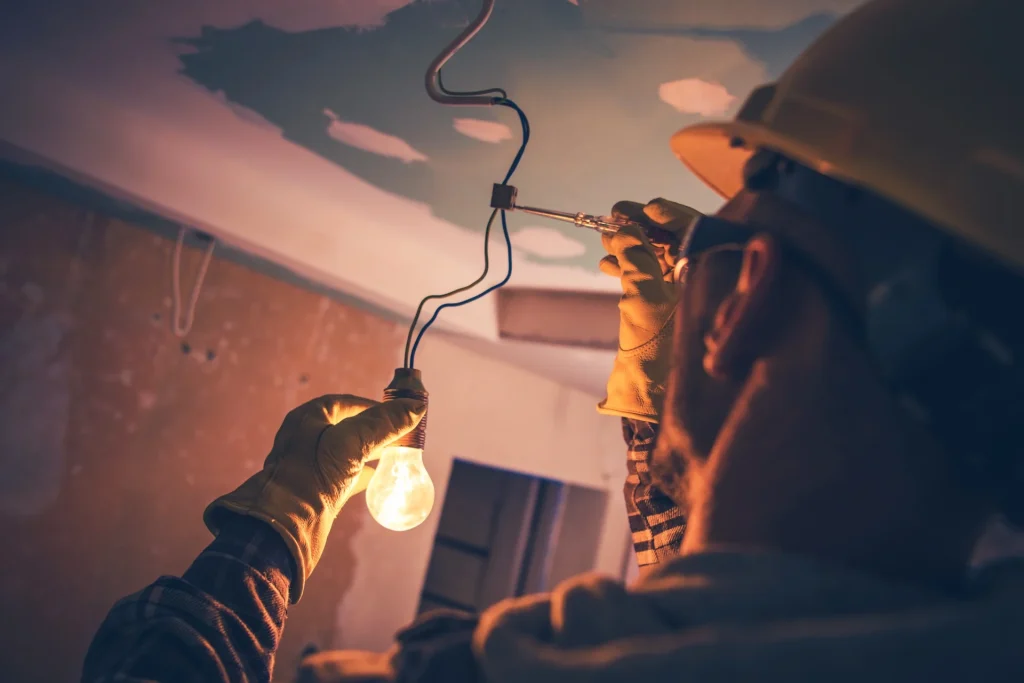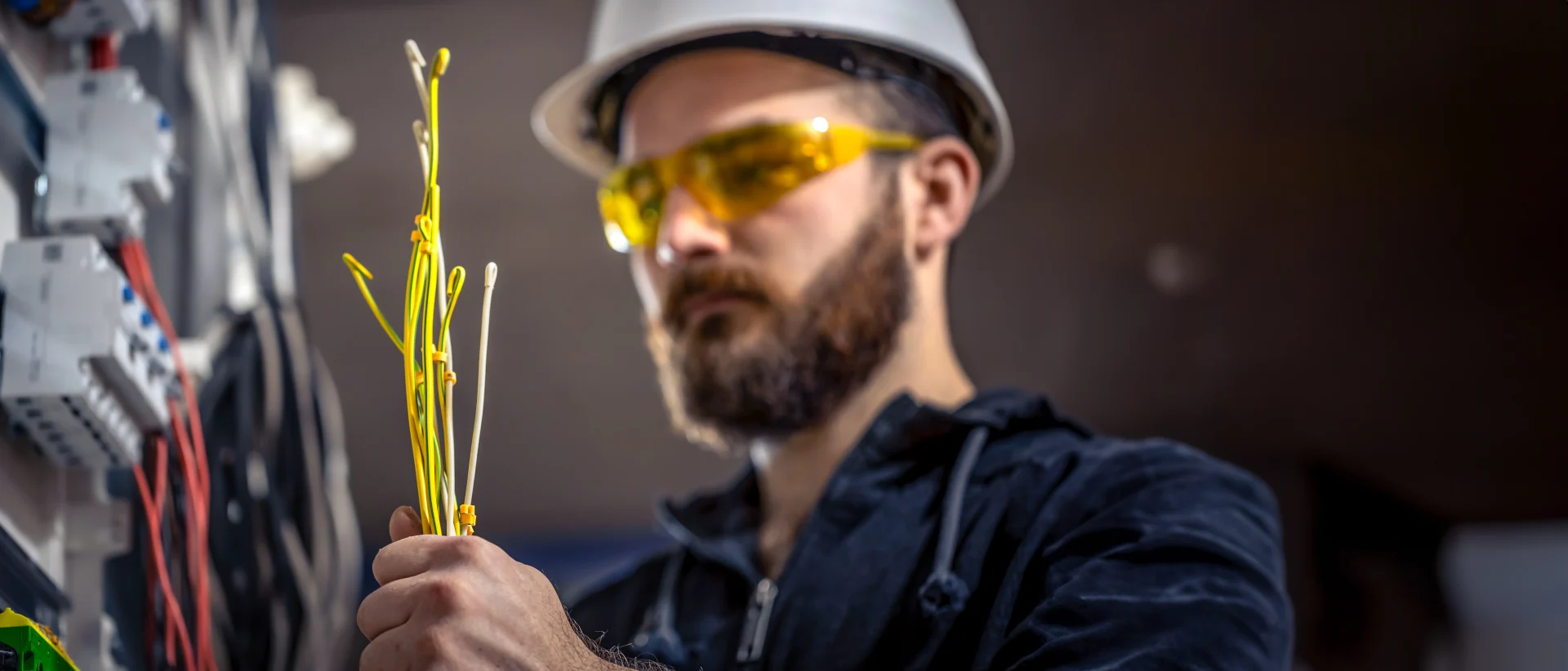Living in Fort Collins means keeping your home’s electricity safe and sound is a top priority. Regular electrical inspections are a must-do for any homeowner – they protect your family and keep your property in tip-top shape.
Whether you’re getting ready for a routine check-up or preparing to sell your home, a little prep work can make the whole process easier and prevent any nasty surprises.
This guide will walk you through everything you need to know to get your Fort Collins home inspection-ready. We’ll cover the basics, from spotting potential trouble spots to making sure your electrical panels and outlets meet all the necessary safety standards. For any serious concerns or complex issues, it’s always best to consult with an experienced electrician.
Understanding the Importance of Electrical Inspections
Electrical inspections aren’t just a box to tick off – they’re essential for keeping your family and home safe. Think of them as a safety check for your home’s electricity.
Regular inspections can sniff out hidden dangers like fire hazards, old and worn-out wiring, and other electrical problems you might not even know about. They also make sure everything in your electrical system meets the latest safety standards.
In Fort Collins, you often need an electrical inspection when:
- Buying or selling your home: It’s like a clean bill of health for your home’s electrical system.
- Renovating or making major changes: Ensures your upgrades are safe and up to code.
- Applying for permits: Helps ensure your project meets local building regulations.
Dealing with electrical issues: Whether it’s a flickering light or something more serious, an inspection can pinpoint the problem.
By getting your home inspection-ready, you can tackle any issues head-on before they turn into bigger problems and cost you more money. Plus, it makes the whole inspection process smoother and less stressful.
Preparing Your Fort Collins Home for an Electrical Inspection
To ensure a smooth and successful electrical inspection, follow these steps to prepare your Fort Collins home:
1. Identify and Address Potential Problem Areas
Before the inspection, take a walk-through of your home and look for any visible signs of electrical issues or concerns. This may include:
- Flickering or dimming lights: Could be a sign of loose connections or overloaded circuits.
- Warm or discolored outlets: These can be a fire hazard.
- Tripping breakers: A frequent problem might indicate an overload.
- Exposed or damaged wiring: A serious safety concern.
- Outdated or overloaded electrical panels: Could be a fire hazard.
- Missing GFCIs: Ground Fault Circuit Interrupters protect you in wet areas like bathrooms and kitchens. Make sure you have them installed.
Take note of any areas that might need a closer look and tackle those issues before the inspection. This will not only help you get a clean bill of health but also make your home’s electricity safer and more efficient.
2. Ensure Easy Access to Electrical Panels and Outlets
The electrical inspector will need to access various parts of your home’s electrical system, including the main electrical panel, circuit breakers, and outlets. Make sure these areas are easily accessible and free of any obstructions, such as:
- Removing any items or furniture blocking the main electrical panel
- Clearing a path to the electrical panel and outlets
- Ensuring all circuit breakers are clearly labeled and easily identifiable
- Removing any covers or decorative items that may be hiding outlets or electrical components
By giving the inspector easy access, you’ll speed up the process and make sure they can thoroughly check everything.
3. Tidy Up and Organize the Electrical Areas
Even though the inspector is mainly focused on your home’s electrical safety, a tidy workspace can always make a good impression.
Take a few minutes to tidy up the areas around your electrical panel, outlets, and other electrical parts. This could include:
- Sweeping or vacuuming the floor around the electrical panel
- Wiping down the exterior of the electrical panel and any visible wiring
- Removing any clutter or unnecessary items from the electrical areas
- Ensuring the area is well-lit and free of any potential tripping hazards
Keeping things tidy shows that you care about the safety of your home. When the inspector sees that you’ve taken the time to clear the area around your electrical panel and outlets, it shows that you’re mindful of electrical safety and want to maintain a well-maintained home.
4. Review and Understand Your Home’s Electrical System
Before the inspector arrives, take a quick look at your home’s electrical system. This will help you understand what’s happening during the inspection and make it easier to deal with any problems that might come up.
Don’t forget to check these things out:
- The location and capacity of your main electrical panel: Where is it located? What is its amperage rating?
- The number and types of circuit breakers in your panel: How many breakers are there? Are they standard breakers, or are there any special types like GFCIs or AFCIs?
- The presence and placement of any GFCIs or arc fault circuit interrupters (AFCIs): Do you have GFCIs in bathrooms, kitchens, and outdoor outlets as required? Do you have AFCIs in bedrooms as required in newer homes?
- The overall age and condition of your home’s wiring and electrical components:
- Look for signs of age or wear and tear: Are there any visible signs of exposed or frayed wires?
- Check for any unusual smells coming from outlets or switches: This could indicate overheating.
- Inspect the condition of your electrical outlets: Are they loose, discolored, or showing signs of burning?
- Look for any signs of water damage near electrical outlets or switches: Water damage can create serious electrical hazards.
- Check the condition of your light fixtures: Are there any signs of damage or loose connections?

- Note any recent electrical work or repairs: Have you recently had any electrical work done? If so, make sure you have the necessary permits and documentation.
- Identify any areas of concern: Are there any areas of your home that experience frequent power outages or unusual electrical activity?
Knowing a little about your home’s electricity will help you answer the inspector’s questions and show that you’re serious about keeping your home safe and up-to-date.
5. Gather Relevant Documentation
The inspector might ask to see some paperwork related to your home’s electricity. To make things go smoothly, gather these documents:
- Permits and records: Any permits or paperwork from past electrical work or upgrades.
- Manuals: Manuals for your breaker box, circuit breakers, or other major electrical parts.
- Contact info: Contact information for any electricians who’ve worked on your home’s electricity.
Having these documents handy shows that you take your home’s electrical safety seriously and helps the inspector get the information they need quickly.
6. Communicate with the Inspector
Finally, be open and honest with the inspector. They’re there to make sure your home’s electricity is safe, not to trick you!
- Introduce yourself and express your willingness to assist the inspector
- Ask questions if you’re unsure about any part of the inspection process
- Provide accurate and detailed information about your home’s electrical system
- Be transparent about any known issues or concerns you’ve identified
- Follow any instructions or recommendations provided by the inspector
By working together with the inspector, you can make the inspection go smoothly and quickly address any issues that come up.
Final Thoughts
Getting ready for an electrical inspection in Fort Collins might feel a bit overwhelming, but don’t worry! This guide will help you navigate the process smoothly.
Remember, electrical inspections aren’t just a formality – they’re essential for keeping your family and home safe. By taking the time to identify and fix any potential problems, making things easy for the inspector, and being open and honest with them, you’re showing that you care about the safety of your home.
With a little preparation, you can feel confident that your home will pass the inspection and continue to provide a safe and comfortable living space for years to come.
If you have any questions or need a helping hand, don’t hesitate to reach out to a qualified electrician in Fort Collins. They can provide expert advice and ensure everything goes smoothly.



